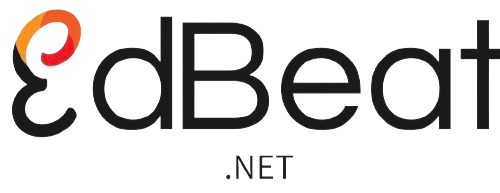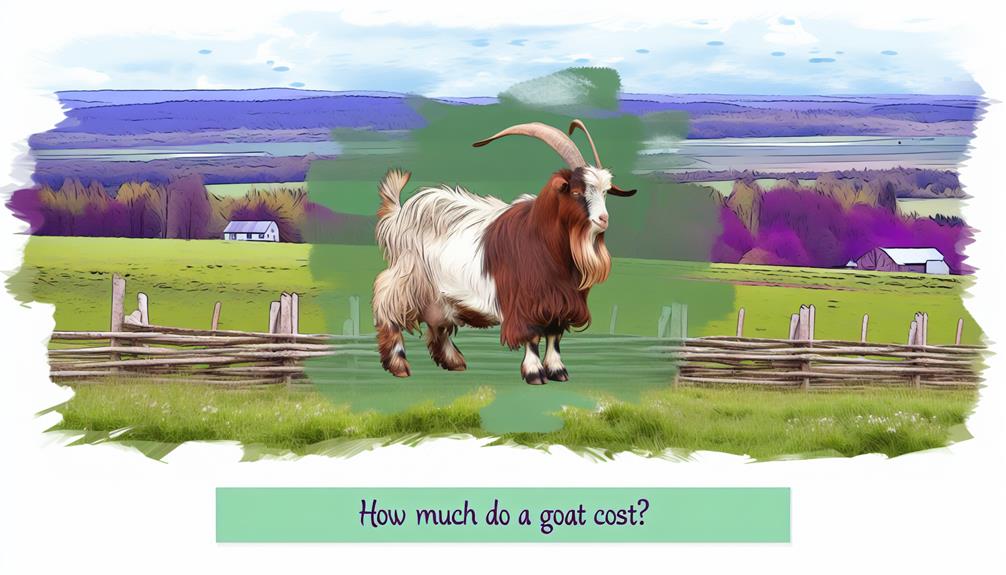Goats have become increasingly popular as pets, livestock, and even for agricultural purposes. However, before embarking on the goat-owning journey, it is crucial to consider the associated costs. The initial purchase price of a goat varies depending on factors such as breed, age, and purpose. But that is just the tip of the iceberg. Ongoing maintenance costs, including shelter and fencing expenses, feed and nutrition expenses, and veterinary care and medical expenses, need to be taken into account as well. Additionally, there are other expenses to consider that may not be immediately apparent. So, how much does a goat really cost? Let's explore the different aspects of goat ownership and break down the numbers to give you a comprehensive understanding of the investment required.
Initial Purchase Price
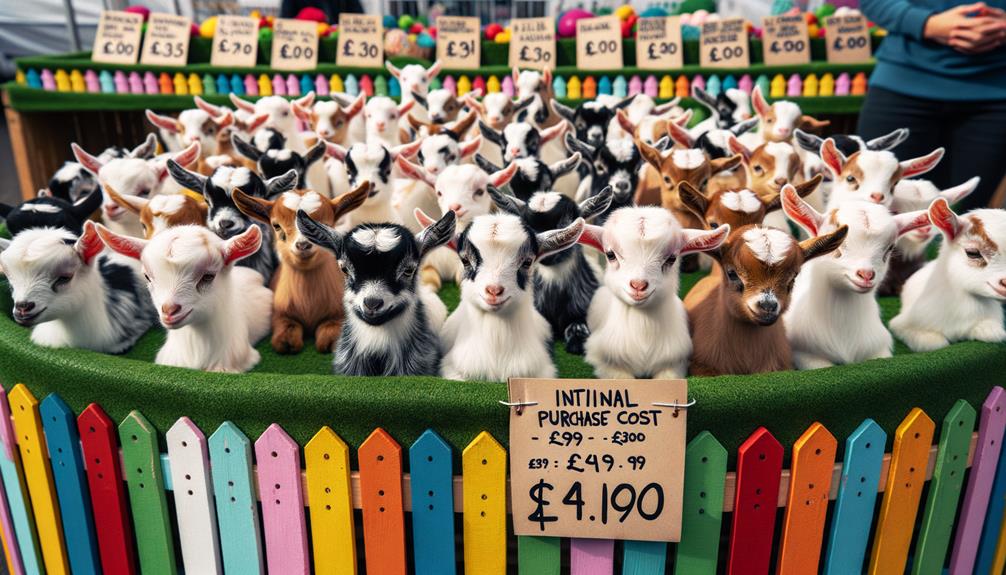
The initial purchase price of a goat can vary significantly depending on factors such as breed, age, and location. When it comes to goat breeds, there is a wide range of options available in the market. Some popular goat breeds include Alpine, Boer, Nubian, Saanen, and LaMancha, each with their own unique characteristics and market prices.
The market prices for goats can fluctuate based on several factors. Firstly, the breed of the goat plays a crucial role in determining its price. Certain breeds, such as Boer goats, are highly sought after for their meat production, and therefore, command higher prices in the market. On the other hand, dairy breeds like Nubian and Saanen goats are valued for their milk production, influencing their market prices accordingly.
Secondly, the age of the goat also affects its purchase price. Younger goats, known as kids or doelings, are generally priced lower than adult goats. This is because younger goats require more time and resources to raise and train. Additionally, older goats, especially those with proven breeding records or established milk production, may have higher market prices due to their potential for future productivity.
Lastly, the location of the purchase can impact the initial price of a goat. The cost of living, availability of specific breeds, and local demand can all influence market prices in different regions. For example, in areas with a high demand for dairy goats, the prices for such breeds may be higher compared to regions where meat production is more prevalent.
To summarize, when considering the initial purchase price of a goat, factors such as breed, age, and location need to be taken into account. Understanding the market prices for different goat breeds and considering the specific requirements of your farming operation will help you make an informed decision and optimize your investment.
Ongoing Maintenance Costs
To ensure the well-being and productivity of your goat, it is crucial to consider the ongoing maintenance costs associated with their care and upkeep. While the initial purchase price of a goat is a significant investment, it is equally important to factor in the long-term expenses that come with owning and maintaining a goat. Here are three key areas of ongoing maintenance costs to consider:
- Grazing management techniques: Implementing effective grazing management techniques is essential for the health and well-being of your goat, as well as for the sustainability of your pasture. This includes rotational grazing, which involves dividing the pasture into smaller sections and rotating the goats to different areas periodically. By doing so, you can ensure that the goats have access to fresh forage while allowing the pasture vegetation to regenerate. Additionally, supplementary feeding may be necessary during periods of limited forage availability, such as winter or drought.
- Alternative methods of goat housing: Traditional methods of goat housing, such as barns or sheds, can be costly to construct and maintain. However, innovative alternatives such as portable electric fencing or goat tractors can provide cost-effective solutions. Portable electric fencing allows for rotational grazing and can be easily moved to different areas, allowing the goats to have access to fresh forage while minimizing the need for expensive permanent structures. Goat tractors, on the other hand, are mobile pens that can be moved around the pasture, providing shelter and protection for the goats.
- Health and veterinary care: Regular health check-ups, vaccinations, and preventive treatments are essential for maintaining the well-being of your goats. This includes deworming, hoof trimming, and dental care. It is crucial to work with a veterinarian experienced in goat care to ensure the health and longevity of your animals.
Considering these ongoing maintenance costs will help you plan and budget effectively, ensuring the health, productivity, and longevity of your goats. By implementing grazing management techniques, exploring alternative methods of goat housing, and prioritizing health and veterinary care, you can minimize expenses while maximizing the well-being of your goats.
Shelter and Fencing Expenses
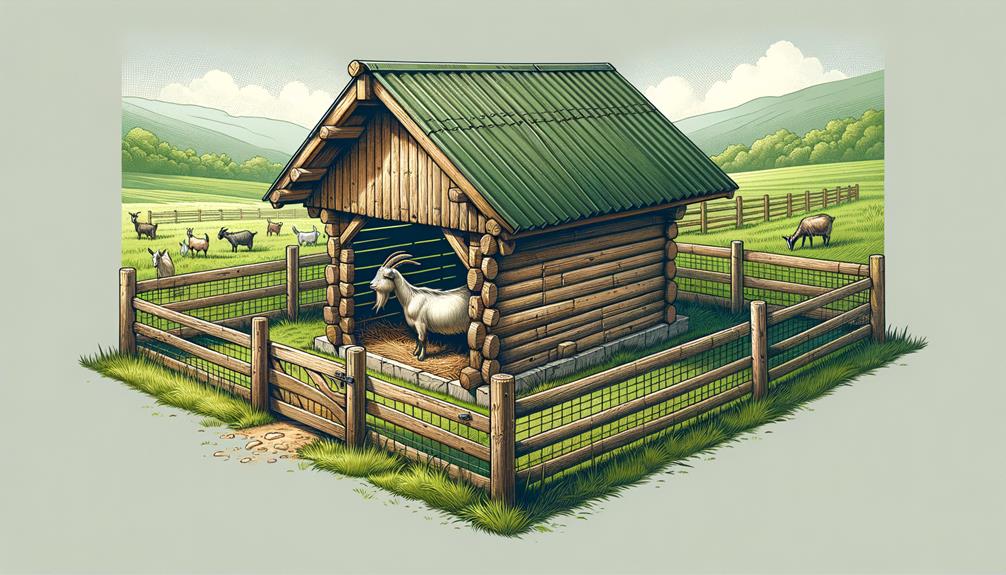
When considering the cost of owning a goat, it is important to factor in the expenses associated with providing shelter and fencing. Shelter construction costs can vary depending on the materials and size of the structure, with estimates ranging from $500 to $5,000 or more. Fencing installation expenses also vary, with an average cost of $1,500 to $3,000 for a basic perimeter fence. Additionally, ongoing maintenance and repair fees should be budgeted for to ensure the safety and security of the goats.
Shelter Construction Costs
Shelter construction costs, including expenses for both shelter and fencing, play a crucial role in the overall investment required for goat ownership. When it comes to shelter design, there are several innovative options to consider, such as portable shelters, hoop houses, or traditional barns. Each option has its own advantages and cost implications. Construction materials also play a significant role in determining the overall cost. While wood and metal are commonly used, newer materials like PVC or recycled plastic can offer durability and cost savings. Additionally, the size of the shelter and the number of goats it can accommodate will impact the overall construction costs. By carefully considering shelter design and construction materials, goat owners can make informed decisions to minimize expenses while providing a safe and comfortable environment for their animals.
Fencing Installation Expenses
The cost of fencing installation is a significant expense to consider when calculating the overall investment for goat ownership, as it plays a crucial role in providing a secure and enclosed space for the goats. The cost of materials for fencing can vary depending on the type of fencing you choose. Traditional options like barbed wire or electric fencing can be cost-effective, while more innovative options like woven wire or high-tensile fencing may require a higher upfront investment. Labor costs for installation can also vary depending on the complexity of the fencing design and the size of the area to be fenced. It is recommended to get quotes from professional fencing contractors to get an accurate estimate of the labor costs involved. By carefully considering the cost of fencing materials and labor, goat owners can ensure that they provide a safe and secure environment for their goats while managing their overall investment effectively.
Maintenance and Repair Fees
Regular maintenance and timely repairs of the shelter and fencing are essential to ensure the longevity and functionality of these structures for goat owners. Neglecting maintenance can lead to costly repairs and compromise the safety and well-being of the goats. Here are some key points to consider regarding the maintenance and repair fees:
- Regular Inspections: Conducting regular inspections of the shelter and fencing can help identify any issues early on, preventing them from escalating into major problems.
- Cleaning and Repainting: Regular cleaning and repainting of the shelter and fencing can help protect them from weather damage and extend their lifespan.
- Cost of Unexpected Repairs: Despite regular maintenance, unexpected repairs may still be necessary. These can include fixing damaged fencing, repairing leaks in the shelter, or replacing worn-out parts.
Feed and Nutrition Expenses
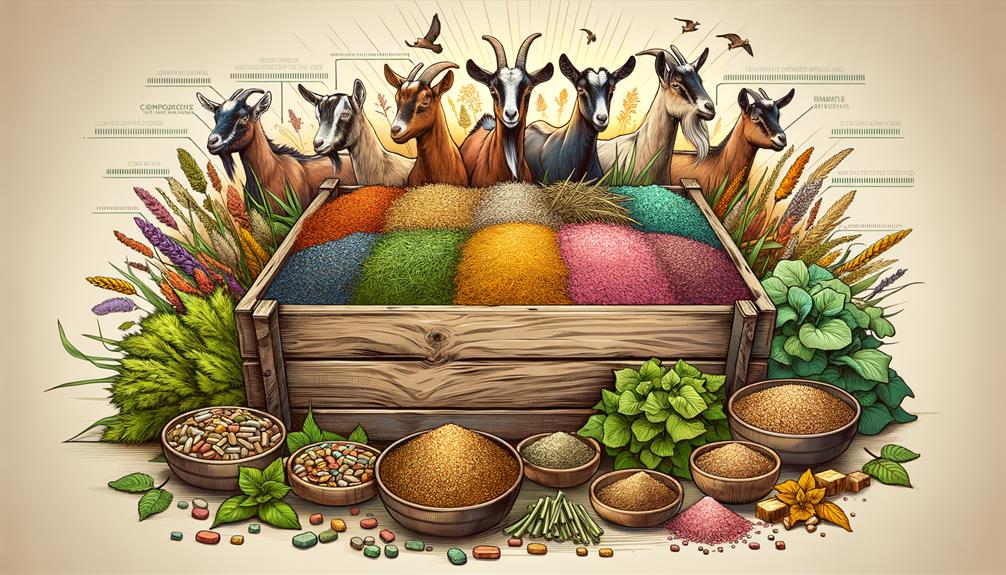
To ensure the optimal health and productivity of goats, it is essential to carefully consider the feed and nutrition expenses involved in their upkeep. Goats are herbivores and have specific nutritional requirements that need to be met for them to thrive. Providing a well-balanced diet is crucial in promoting their growth, reproduction, and overall well-being.
Table: Nutritional Requirements for Goats
| Nutrient | Requirement |
|---|---|
| Energy | 70-80% of the diet |
| Protein | 12-16% of the diet |
| Vitamins and Minerals | Provided through forage and supplementation |
| Water | Adequate supply at all times |
When it comes to goat feed options, there are several choices available. The primary source of nutrition for goats is forage, such as grass, hay, and browse. It is important to provide good quality forage that is free from mold and contaminants. Additionally, goats can benefit from the inclusion of concentrates or grain in their diet, especially during periods of high energy demand, such as lactation or growth.
Supplementation with minerals and vitamins is also necessary to ensure that goats receive all the essential nutrients they need. These can be provided through commercially available mineral mixes or through natural sources, such as kelp or salt blocks.
It is worth noting that the nutritional needs of goats may vary depending on factors such as age, sex, weight, and overall health. Consulting with a veterinarian or a livestock nutritionist can help in formulating a diet plan that meets the specific requirements of your goats.
Veterinary Care and Medical Expenses
When considering the cost of owning a goat, it is important to factor in veterinary care and medical expenses. Vaccinations are a necessary part of keeping a goat healthy and preventing the spread of diseases. Additionally, emergencies and unexpected illnesses can arise, requiring immediate medical attention and potentially increasing the overall cost of goat ownership. Therefore, budgeting for veterinary care and medical expenses is essential to ensure the well-being of the goat and manage the financial aspect of goat ownership effectively.
Cost of Vaccinations
The cost of vaccinations for goats includes veterinary care and medical expenses, making it an essential aspect of responsible goat ownership. Vaccinations are crucial for maintaining the health and well-being of goats, as they protect against various diseases and infections. Here are three important points to consider regarding the cost of vaccinations for goats:
- Goat vaccination schedules: Vaccinations should be administered according to a proper schedule recommended by veterinarians. This ensures that goats receive the necessary immunizations at the right time, providing them with maximum protection against diseases.
- Importance of vaccination in goat farming: Vaccinations play a vital role in preventing the spread of contagious diseases within a goat herd. By vaccinating goats, farmers can significantly reduce the risk of illness and mortality, leading to improved productivity and profitability.
- Cost of veterinary care and medical expenses: Along with the cost of the vaccines themselves, goat owners should also consider the expenses associated with veterinary visits, diagnosis, and any additional medical treatments that may be required. These costs are essential investments in the overall health and longevity of the goats.
Emergency Medical Expenses
Continuing with the discussion on the cost of goat ownership, one crucial aspect that goat owners must consider is the potential emergency medical expenses, including veterinary care and medical treatments. Goats, like any other animals, can fall ill or get injured unexpectedly, and the cost of their healthcare can quickly add up. It is important for goat owners to be prepared for these unexpected veterinary bills by considering emergency medical insurance options. Having insurance coverage can help alleviate the financial burden of unexpected medical expenses and ensure that goats receive the necessary care they need. To give you an idea of the potential costs involved, here is a breakdown of some common emergency medical expenses that goat owners may encounter:
| Expense Type | Average Cost |
|---|---|
| Emergency Surgery | $500 to $1,500 |
| Hospitalization | $50 to $150 per day |
| Diagnostic Tests | $50 to $200 |
| Medications | $20 to $100 |
Additional Expenses to Consider
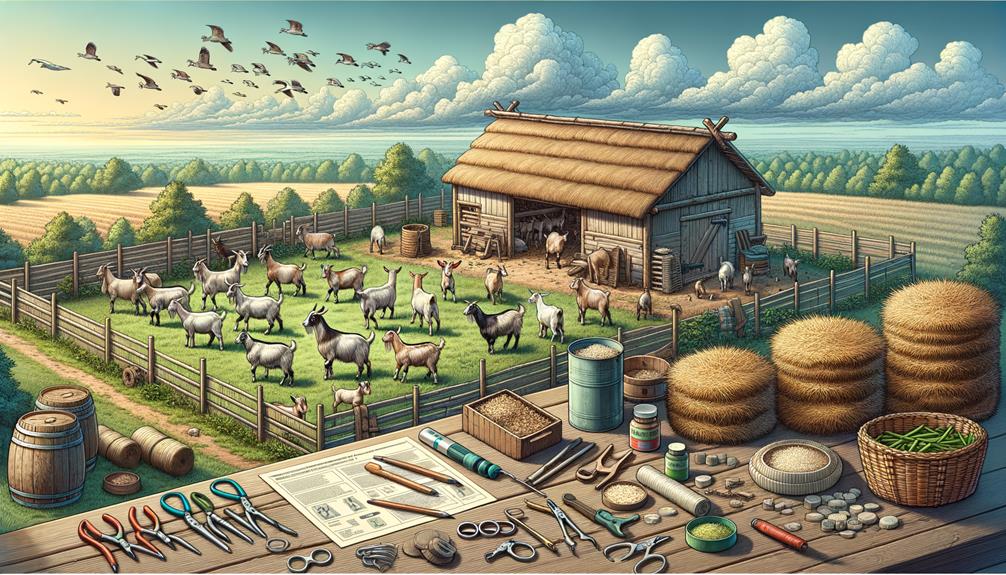
To ensure an accurate financial assessment, it is essential to consider the various additional expenses associated with owning a goat. While the initial purchase price and emergency medical costs are significant factors, there are other ongoing expenses that should be taken into account. These additional expenses include:
- Feed and Nutrition: Goats require a balanced diet to maintain their health and productivity. This includes hay, grains, minerals, and supplements. The cost of feed can vary depending on the breed, size, and age of the goat, as well as the availability and quality of feed in your area.
- Housing and Fencing: Proper shelter and secure fencing are essential for the well-being and safety of your goats. The cost of building or purchasing a suitable shelter and installing sturdy fencing should be considered in your overall budget. Additionally, regular maintenance and repairs may be necessary to ensure the longevity of these structures.
- Goat Breeding Opportunities: If you plan to breed your goats, there are additional expenses to consider. This includes the cost of acquiring a breeding buck or arranging stud services, as well as veterinary care during pregnancy and kidding. Breeding goats can be a profitable venture, but it also requires careful planning and investment.
Furthermore, it is advisable to explore insurance coverage options for your goats. While not a mandatory expense, insurance can provide financial protection against potential risks such as theft, disease outbreaks, or liability claims. Insurance policies specifically designed for livestock can offer peace of mind and help mitigate unexpected financial losses.
Frequently Asked Questions
Can Goats Be Kept in a Suburban Backyard?
Keeping livestock in urban areas presents several challenges, including the feasibility of backyard goat farming. While goats can be kept in suburban backyards, certain factors need to be considered. These include local zoning regulations, space requirements, and the availability of proper shelter, fencing, and grazing areas. Additionally, neighbors' concerns, noise levels, waste management, and potential health risks should be addressed. Urban goat farming requires careful planning and adherence to regulations to ensure the successful integration of goats into a suburban environment.
Are There Any Legal Restrictions on Keeping Goats in Residential Areas?
Legal regulations on keeping goats in residential areas vary depending on the local jurisdiction. Concerns about noise and odor are common reasons for these regulations. While some areas may have strict zoning laws that prohibit goat-keeping in residential areas, others may allow it with certain restrictions, such as the number of goats or the distance from neighboring properties. It is important for individuals interested in keeping goats in residential areas to research and comply with the specific legal requirements in their locality.
How Much Space Do Goats Need for Grazing and Exercise?
When considering goat grazing techniques and maintaining goat health, it is important to assess the amount of space required for grazing and exercise. Goats are highly active animals that require ample room to roam and forage. The recommended space for goats depends on factors such as breed, size, and terrain. On average, goats need at least 250 square feet of grazing area per animal. Providing a diverse range of vegetation and rotational grazing can promote optimal health and prevent overgrazing.
Do Goats Require Any Specific Vaccinations or Preventive Treatments?
Goats require specific vaccinations and preventive treatments to maintain their health and prevent the spread of diseases. Vaccination requirements for goats vary depending on the region and the specific diseases prevalent in that area. Common vaccinations for goats include tetanus, clostridium perfringens types C and D, and rabies. Additionally, goats may require preventive treatments such as deworming, hoof trimming, and regular health check-ups. It is important for goat owners to consult with a veterinarian to develop a comprehensive vaccination and preventive treatment plan for their goats.
Are There Any Local Resources or Organizations That Can Provide Guidance on Goat Care and Support?
When it comes to goat care and support, it is important to explore local resources and organizations that can provide valuable guidance. These resources can offer information on the best practices for goat care, including feeding, housing, and healthcare. Additionally, they may provide access to veterinary services, training programs, and networking opportunities with fellow goat owners. By leveraging these local resources, goat owners can ensure the well-being and success of their animals while staying up to date with the latest innovations in goat care.
Conclusion
In conclusion, the cost of owning a goat involves various expenses such as the initial purchase price, ongoing maintenance costs, shelter and fencing expenses, feed and nutrition expenses, and veterinary care and medical expenses. It is important for potential goat owners to consider these additional expenses before making a decision. By understanding the financial commitments involved, individuals can make informed choices and ensure the well-being of their goats.
